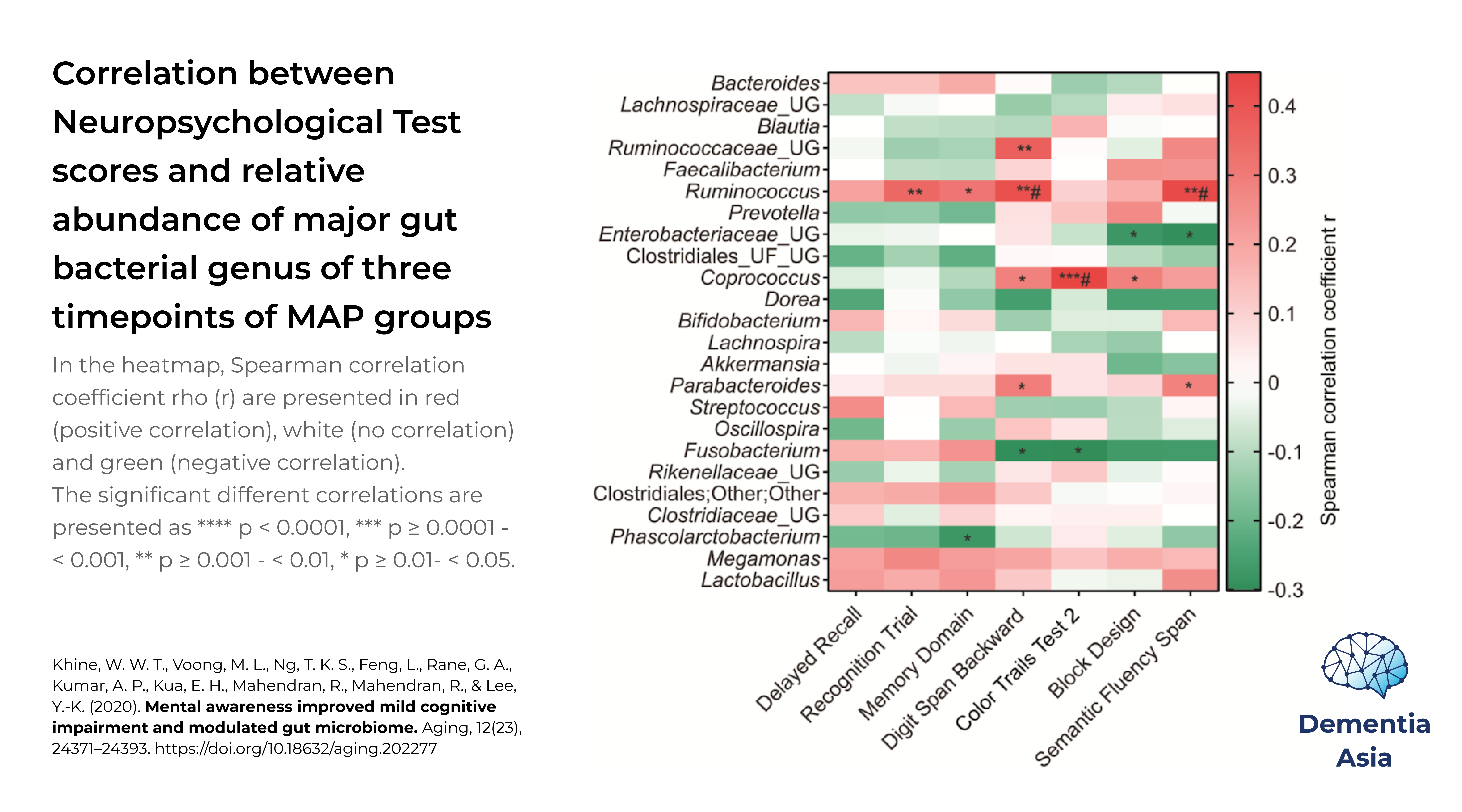Mindfulness Awareness Practice (MAP) Improves Gut Microbiome

The Mind Science Centre has examined the impact of mindfulness awareness practice (MAP) on gut microbiome. MAP was introduced to older adults with mild cognitive impairment (MCI) as an intervention for the early stages of cognitive decline. Along with neuropsychological assessments, the study assessed for changes in inflammatory markers, telomere length, and gut microbiota profiles.
Results from the study found that improvements in certain cognitive functions were associated with positive changes in gut bacteria profiles.
Gut Microbiome as a Risk Indicator of MCI
The bacteria in the intestinal tract, number in the trillions. Some classes of bacteria can, potentially cause various diseases. On the other hand, ‘good’ bacteria, play important roles in controlling inflammation and the secretion of neurotransmitters.
While there is much scientific and clinical evidence to suggest that gut microbiota can affect the brain, recent research suggests that the brain may also affect gut bacteria in a bidirectional manner. Researchers at the Mind Science Centre have established that there is a difference in the gut microbiota profile in Normal Ageing subjects as compared to those with MCI and Dementia.
Mindfulness awareness practice (MAP) was then introduced as a psychosocial intervention to determine if improvements in cognition were associated with changes in the gut bacteria. MAP sessions were held weekly for the first 12 weeks (3 months) and then monthly for the next 6 months.
Along with changes in gut microbiota profiles following the intervention, the results also demonstrate the role of the gut microbiome as a risk indicator of MCI.
Changes in Gut Microbiota Profiles Following Mindfulness Awareness Practice (MAP)
Results from our previous study have verified the correlation between MAP and cognitive functions, specifically significant improvements in recognition trials and in the memory domain. However, these improvements were loss when the frequency of the MAP was reduced to monthly sessions.
The faecal microbiome showed the same trend. Thus the changes associated with mindfulness awareness practice are dependent on frequency of practice sustained over a long period.
Link between Gut Bacteria and Brain Cognitive Function

Changes in certain cognitive functions led to alterations in the abundance of specific gut microbiota differently. This strongly suggests that signals from the brain could dictate directly or indirectly the abundances of specific gut bacteria.
Translating the Research: Age Well Everyday Programme
Our studies have shown that Mindfulness Awareness Practice (MAP) can be a suitable intervention to slow or even reverse cognitive decline and other ageing-related psychophysiological changes.
Results from those studies became the base of Mind Science Centre’s flagship programme: Age Well Everyday (AWE). AWE holistically encompasses a series of community activities for seniors to engage in active ageing, including:
- Health education
- Mindfulness practice
- Art and music reminiscence
- Gardening
- Choral Singing
- Exercise and more.
More information on the AWE programme can be found here.
References
Khine, W. W. T., Voong, M. L., Ng, T. K. S., Feng, L., Rane, G. A., Kumar, A. P., Kua, E. H., Mahendran, R., Mahendran, R., & Lee, Y.-K. (2020). Mental awareness improved mild cognitive impairment and modulated gut microbiome. Aging, 12(23), 24371–24393. https://doi.org/10.18632/aging.202277
